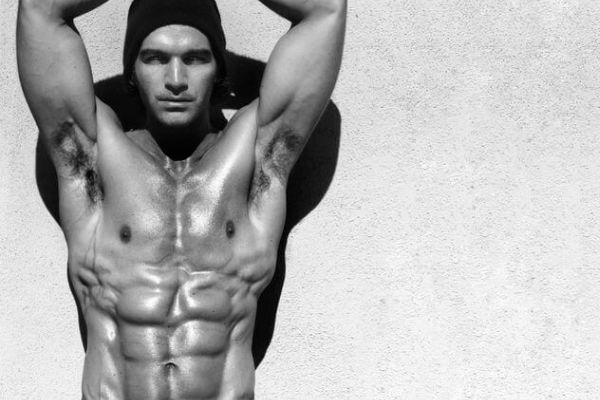Like intermittent fasting, carb backloading has exploded in popularity over the last few years.
The pitch is pretty alluring, too: according to carb backloading’s main proponent, John Kiefer, you can use this unorthodox style of eating to lose fat and build muscle while over-indulging in your favorite sugary carbs, 7 days per week.
It sounds pretty awesome but is there any truth to it? Is carb backloading any better than traditional dieting?
Let’s find out.
Table of Contents
Carb Backloading 101: The Method Behind the “Madness”

In case you’re not familiar with the carb backloading diet, it’s fairly simple:
- You eat light during the morning (which may include skipping breakfast) and early afternoon hours, and feast at night.
- You eat little-to-no carbs until after your workout, which should be later in the afternoon (5 PMish).
- Your carb intake begins with your post-workout meal and it continues throughout the evening.
According to Kiefer, the most well-known promoter of carb backloading (I wouldn’t say the creator of the method though, as the idea has been around since Arnold’s time), this style of dieting takes advantage of the natural daily fluctuations in insulin sensitivity in muscle and fat cells, as well as the exercise-induced increase in insulin sensitivity in muscle cells.
You see, research shows that insulin sensitivity in both muscle and fat cells is higher in the morning than the evening, which means that both muscle and fat cells will be more receptive to glucose earlier in the day. This is good in the case of muscle (more glucose absorbed into the muscles = better performance in the gym), and bad in the case of fat (more glucose absorbed into the fat cells = more fat storage).
The basic premise of carb backloading is you use these mechanisms to your advantage by not eating carbs when your body is most able to store them as fat (early in the day). Instead, you eat carbs when your body is most likely to store them as glycogen in the muscles (later in the day, after working out).
The post-workout point is important: you use weightlifting later in the day to deplete glycogen stores and increase insulin sensitivity in the muscle cells, but not the fat cells, so when you then start eating carbs, your body preferentially shuttles them into the muscles, not fat cells.
That’s the theory at least. And while it sounds pretty cutting edge and Kiefer lists dozens of studies to back up his ideas, it’s not all it’s cracked up to be. But before I get to that, let’s briefly review a few of the positive aspects of carb backloading.
Carb Backloading Helps Break the Mainstream Dietary Trance

Those stuck in the festering swamp of bullshit fad diets are misled to think that losing fat and building muscle are much trickier than they really are.
Instead of being taught the truth about healthy weight loss, they’re sold on all kinds of scientifically bankrupt (and in many cases, debunked) principles revolving around food restriction, meal frequency, starvation, worthless weight loss pills, and more.
Carb backloading can help you escape the maze of mainstream dietary nonsense and show you that proper dieting, whether your goal is weight loss or muscle growth, is nothing more than hitting daily macronutrient targets. What you eat to get there doesn’t really matter. That is…
When we’re talking body composition, WHAT you eat and WHEN isn’t nearly as important as HOW MUCH.
Carb backloading also fits certain people’s lifestyles nicely. If you train at night, you might enjoy eating your entire day’s worth of carbs afterward. I wouldn’t (I also wouldn’t enjoy having no carbs throughout the day), but that’s me.
Carb Backloading’s Shaky Scientific Foundation

Despite the impressive roster of studies cited to back up the theory of carb backloading, it’s just that until proven effective in randomized controlled trials. Sometimes things just don’t pan out in vivo as they appear on paper, and correlations in epidemiological research are not causations.
Well, there are two such studies that are commonly touted as definitive proof that carb backloading is more effective than traditional dieting for building muscle and losing fat.
The first study compared the effects of eating 70% of daily calories in the morning vs. the evening on body composition. 10 subjects were placed on a six-week weight loss (calorie restricted) diet, and the group that ate the majority of their daily calories in the evening lost more fat and less muscle than the morning group.
While the design of this study was strong–food intake was strictly controlled and exercise was a structured routine consisting of cardio and resistance training–the sample size was quite small (10) and, more troubling, the notoriously inaccurate method of total body electrical conductivity was used to assess body composition.
The second study was published in 2011, and consisted of a 6-month program wherein Israeli police officers ate about 1,500 calories per day, with one group eating carbs throughout the day and another eating the majority of carbs at dinner. Researchers found that the evening group lost more body fat than the control group and enjoyed greater levels of satiety.
While this study sounds really promising for carb backloading, it has several major flaws:
- Calorie intake was self-reported, which opens the door to major inaccuracies.
- Protein intake was very low considering the average weight of participants: 75 – 90 grams per day with an average weight of about 215 pounds. This isn’t enough to maintain muscle mass, and is far less than you or I would eat.
- Subjects weren’t exercising, which is a major part of the carb backloading theory. The key isn’t just eating carbs later in the day, but eating carbs later in the day after your workouts.
- The evening group only lost about 5 pounds more over the course of 6 months. That’s hardly indicative of a revolutionary dietary method.
Furthermore, there are several RCTs that show that carb backloading is no better than traditional dieting when it comes to losing weight and preserving muscle:
- This study found that calorie intake in the morning or evening didn’t affect weight loss or body composition parameters.
- This study demonstrated interesting results: subjects that normally ate breakfast lost more weight skipping it and eating the majority of calories at dinner, whereas subjects that normally skipped breakfast lost more weight eating breakfast every day. Researchers chalked this up to greater levels of satiety and thus better dietary compliance.
- This study showed that splitting up calories into 5 equal meals per day eaten between 9 AM and 8 PM, eating all calories in the morning, or all in the evening, didn’t affect weight loss parameters or body composition.
While the available research does indicate that eating large amounts of carbohydrates at night can help with overall satiety and thus dietary compliance, there just isn’t any compelling evidence that it does anything special in the way of maximizing fat loss and muscle growth.
Carb Backloading’s Sketchy Sales Pitch

If carb backloading were being sold as nothing more than another way to make meal scheduling fit your lifestyle, should you prefer its prescriptions, it would be fairly representing itself. That’s not how it’s sold, though.
Instead, you’re told that with it you can build muscle and get an awesome six pack without counting calories or doing cardio, and you’ll get to indulge on junk food every day (this isn’t even optional–you’re instructed to!).
Yes, you can lose weight eating foods you like and it is possible to build muscle and lose fat simultaneously, and no, you don’t necessarily have to do cardio, but the only way you can do these things is by maintaining a calorie deficit and training properly–not trying to hack the body by following strange dietary routines.
The idea that you can maximize fat loss by keeping insulin levels low throughout the day, and that you can eat only protein to do this, including whey protein isolate, might sound good, but it just doesn’t pan out.
While it’s true that insulin regulates lipolysis (the process whereby the body releases energy stored in fat cells for use), any additional fat loss caused by lower insulin levels throughout the day can be negated by the fat storage resulting from when you do actually eat.
This is just how the body works–when you eat, it uses the food for immediate energy and it stores a percentage of the excess energy as fat; and once it finishes using and absorbing the energy from the meal, it turns to its fat stores for energy until the next meal.
So sure, by eating fewer calories throughout the day and keeping insulin levels low, you’ll lose more fat during that period than if you had been eating throughout it. But, that evening, if you then eat (in calories) what you would have eaten throughout the day, you’ll end up with the same result in terms of weight loss or gain.
You just can’t “hack” the body’s energy burned vs. energy consumed mechanisms by playing with meal timing or frequency.
Also, it’s worth noting that protein consumption causes insulin levels to rise as well. In fact, whey protein is more insulinogenic than white bread. If you eat protein every few hours, your insulin levels are going to remain quite elevated throughout the entire day.
There are other oddities in the carb backloading theory. For example:
- Kiefer states that training at night results in a lower cortisol response, which helps you build more muscle.
Research shows otherwise, though: this study demonstrated that cortisol response to weightlifting is positively correlated with muscle growth. And while this study isn’t the final word on the matter, there is no valid evidence that I know of demonstrating that a lower cortisol response to exercise results in greater muscle gains.
- Kiefer states that you need to stick to high-glycemic carbohydrates so insulin levels rapidly spike and return to normal before bed for optimal growth hormone production.
While, the jury is still out as to whether elevated insulin levels interferes with growth hormone production while sleeping, it won’t interfere with muscle growth one way or another–growth hormone isn’t anabolic like testosterone.
Furthermore, if you’re eating hundreds of grams of high-glycemic carbs a few hours before bedtime, you can be damn sure your insulin levels won’t have returned to baseline levels by the time you fall asleep. Just 35 grams of sugar is enough to raise insulin levels above baseline for a few hours, and a mixed meal of 75 grams of carbs, 37 grams of protein, and 17 grams of fat will elevate insulin levels for several hours (5+ in the study cited).
The bottom line with carb backloading is if you like eating on that type of schedule, you can do it without harming your metabolism or health. But it is not the magic pill for muscle growth and fat loss like it’s sold to be.
What did you think of this review of carb backloading? Have anything else to share? Let me know in the comments below!
+ Scientific References
- Capaldo B, Gastaldelli A, Antoniello S, et al. Splanchnic and leg substrate exchange after ingestion of a natural mixed meal in humans. Diabetes. 1999;48(5):958-966. doi:10.2337/diabetes.48.5.958
- Tipton KD, Rasmussen BB, Miller SL, et al. Timing of amino acid-carbohydrate ingestion alters anabolic response of muscle to resistance exercise. Am J Physiol - Endocrinol Metab. 2001;281(2 44-2). doi:10.1152/ajpendo.2001.281.2.e197
- Rennie MJ. Claims for the anabolic effects of growth hormone: A case of the emperor’s new clothes? Br J Sports Med. 2003;37(2):100-105. doi:10.1136/bjsm.37.2.100
- West DWD, Phillips SM. Associations of exercise-induced hormone profiles and gains in strength and hypertrophy in a large cohort after weight training. Eur J Appl Physiol. 2012;112(7):2693-2702. doi:10.1007/s00421-011-2246-z
- Salehi A, Gunnerud U, Muhammed SJ, et al. The insulinogenic effect of whey protein is partially mediated by a direct effect of amino acids and GIP on β-cells. Nutr Metab. 2012;9. doi:10.1186/1743-7075-9-48
- Pal S, Ellis V. The acute effects of four protein meals on insulin, glucose, appetite and energy intake in lean men. Br J Nutr. 2010;104(8):1241-1248. doi:10.1017/S0007114510001911
- Bellisle F, McDevitt R, Prentice AM. Meal frequency and energy balance. Br J Nutr. 1997;77(S1):S57-S70. doi:10.1079/bjn19970104
- Tentolouris N, Pavlatos S, Kokkinos A, Perrea D, Pagoni S, Katsilambros N. Diet-induced thermogenesis and substrate oxidation are not different between lean and obese women after two different isocaloric meals, one rich in protein and one rich in fat. Metabolism. 2008;57(3):313-320. doi:10.1016/j.metabol.2007.10.004
- Choi SM, Tucker DF, Gross DN, et al. Insulin regulates adipocyte lipolysis via an Akt-independent signaling pathway. Mol Cell Biol. 2010;30(21):5009-5020. doi:10.1128/MCB.00797-10
- Nonino-Borges CB, Martins Borges R, Bavaresco M, Suen VMM, Moreira AC, Marchini JS. Influence of meal time on salivary circadian cortisol rhythms and weight loss in obese women. Nutrition. 2007;23(5):385-391. doi:10.1016/j.nut.2007.02.007
- Schlundt DG, Hill JO, Sbrocco T, Pope-Cordle J, Sharp T. The role of breakfast in the treatment of obesity: A randomized clinical trial. Am J Clin Nutr. 1992;55(3):645-651. doi:10.1093/ajcn/55.3.645
- Sensi S, Capani F. Chronobiological aspects of weight loss in obesity: Effects of different meal timing regimens. Chronobiol Int. 1987;4(2):251-261. doi:10.3109/07420528709078532
- Cook A, Pryer J, Shetty P. The problem of accuracy in dietary surveys. Analysis of the over 65 UK National Diet and Nutrition Survey. J Epidemiol Community Health. 2000;54(8):611-616. doi:10.1136/jech.54.8.611
- Sofer S, Eliraz A, Kaplan S, et al. Greater weight loss and hormonal changes after 6 months diet with carbohydrates eaten mostly at dinner. Obesity. 2011;19(10):2006-2014. doi:10.1038/oby.2011.48
- Pateyjohns IR, Brinkworth GD, Buckley JD, Noakes M, Clifton PM. Comparison of three bioelectrical impedance methods with DXA in overweight and obese men. Obesity. 2006;14(11):2064-2070. doi:10.1038/oby.2006.241
- Keim NL, Van Loan MD, Horn WF, Barbieri TF, Mayclin PL. Weight Loss is Greater with Consumption of Large Morning Meals and Fat-Free Mass Is Preserved with Large Evening Meals in Women on a Controlled Weight Reduction Regimen. J Nutr. 1997;127(1):75-82. doi:10.1093/jn/127.1.75
- Santos JM, Ribeiro SB, Gaya AR, Appell HJ, Duarte JA. Skeletal muscle pathways of contraction-enhanced glucose uptake. Int J Sports Med. 2008;29(10):785-794. doi:10.1055/s-2008-1038404
- Morris CJ, Aeschbach D, Scheer FAJL. Circadian system, sleep and endocrinology. Mol Cell Endocrinol. 2012;349(1):91-104. doi:10.1016/j.mce.2011.09.003











